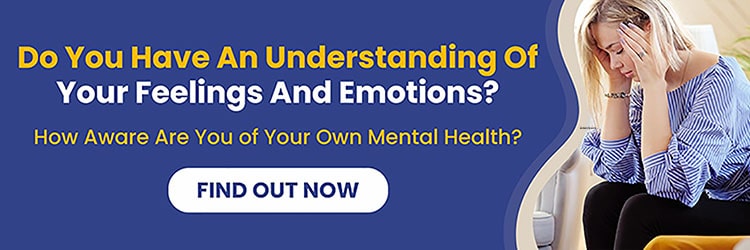How To Be Less Judgmental This Year?
- 14 months ago
Judgment is a natural part of being human. But these days, with all the social media, comparing ourselves to others, and trying to meet society's expectations, this natural judging can turn into a problem.
Scrolling through social media and seeing all these perfect pictures. It can make us feel like we're not good enough like we're not meeting some invisible standards. This feeling of not measuring up can mess with our heads and make us judge ourselves harshly.
The same goes for judging others. When we see people, we might make quick judgments based on their looks or what we think we know about them. It can lead to misunderstandings and even damage relationships.
All this judging, whether it is about ourselves or others, brings stress and negativity into our lives. It can make us feel anxious and stop us from growing in our personal and professional lives. It's important to realize when our natural judgment turns into something not so good. By being aware of this and trying to be kinder to ourselves and others, we can break free from these unhelpful judgments.

What Is Judgment?
Judgment is like a mental tool we use to decide things—what's good, bad, safe, or risky. It's handy for making choices and figuring out the world around us.
Here's the lowdown:
- Judgment helps us pick what's right or wrong, safe or not. It's a survival skill we've had forever.
- Our judgment is influenced by how we grow up and the society we are in. Sometimes, it leads to biases we should watch out for.
- We don't just judge others; we judge ourselves too. It's good to reflect, but too much self-judgment can hold us back.
- Sometimes we judge quickly; other times, we take our time. Being aware of these helps us make better choices.
Also Check: Why Do I Constantly Feel People Are Judging Me? A Therapist’s Guide.
Why Does Judgment Hinder Rather Than Help?
Judging others too quickly or harshly can be a problem. When we constantly criticize and label people or situations, it can make us narrow-minded and negative. It can get in the way of understanding and being compassionate. It's crucial to be aware of when our judgments are causing more harm than good.
- It clouds empathy: Excessive judgment can create a barrier that impedes our ability to empathize. Instead of understanding different perspectives, we become confined by our preconceived notions.
- It limits personal growth: When we judge ourselves harshly, we impede our growth and development. The fear of judgment can deter us from taking risks, trying new things, and embracing change.
- It fosters a negative mindset: Continuous judgment often leads to a negative mindset, making it challenging to see the positive aspects of people or situations. This pessimism can poison relationships and hinder collaboration.
Benefits Of A Judgment Detox
- Improved Relationships: Enhanced empathy fosters deeper connections and understanding in relationships.
- Personal Growth: Freed from the shackles of self-judgment, personal growth becomes a natural progression.
- Positive Mindset: A judgment-free mindset cultivates positivity, improving mental well-being.
- Increased Open-mindedness: Embracing curiosity over judgment expands your perspective and promotes open-mindedness.
- Enhanced Communication: Clear communication arises when judgments are replaced with understanding.

Steps To Embark On A Judgment Detox Journey
- Self-Awareness: The cornerstone of any transformative journey is self-awareness. Begin by reflecting on your thoughts and reactions. Identify situations that trigger judgment and delve into the underlying motivations for these judgments.
- Practice Mindfulness: Cultivating mindfulness is a powerful antidote to the automatic judgment cycle. By staying present in the moment, individuals can break free from the reflexive nature of judgment and develop a non-judgmental awareness of thoughts and emotions.
- Cultivate Empathy: Empathy serves as a bridge over the chasm of judgment. Strive to understand the perspectives and experiences of others without superimposing personal biases. This conscious effort fosters compassion, laying the groundwork for stronger and more authentic relationships.
- Challenge Assumptions: Actively question assumptions and challenge preconceived notions. Recognize that judgments often stem from incomplete information or ingrained biases. Developing an open-minded approach allows for a more accurate understanding of situations.
- Promote Self-Compassion: Extend kindness to yourself as you navigate the judgment detox journey. Embrace imperfections, learn from moments of judgment, and treat yourself with the same understanding you'd offer a friend facing similar challenges.
- Choose Curiosity Over Judgment: Cultivate curiosity when faced with differences. Instead of immediate judgment, ask questions, seek to understand, and appreciate diverse perspectives. This approach fosters learning, growth, and meaningful connections.

Conclusion
A Judgment Detox is not just a personal development trend; it's a profound shift in mindset that can transform the way we relate to ourselves and others. By recognizing the limitations of excessive judgment and taking intentional steps to detoxify our thoughts, we open ourselves up to a world of possibilities, connection, and growth. Embrace the power of compassion, curiosity, and empathy, and witness the positive ripple effect it creates in your life and the lives of those around you.








